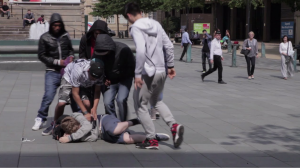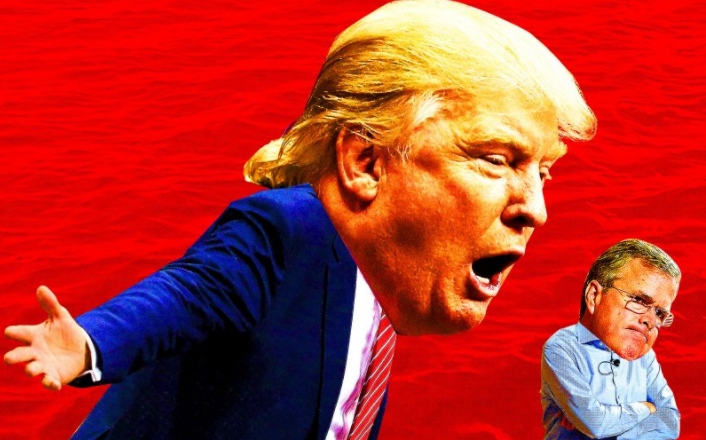 aNewDomain— We have a bullying problem in America. We have bullies at schools, work, government, police departments, everywhere. It’s a problem that becomes a little less obvious after junior high and high school, true. But bullying never really goes away.
aNewDomain— We have a bullying problem in America. We have bullies at schools, work, government, police departments, everywhere. It’s a problem that becomes a little less obvious after junior high and high school, true. But bullying never really goes away.
And you find bullies in the most unexpected places, too. Video game forums, for example. Gamers, who are most usually white males, are known for their nastiness to the girls among them. From basic sexism up to threats of rape and murder, gamers are definitely bullies.
We have a stereotype of the video game player as a lonely, disaffected nerd. He’s angry and isolated. Another stereotype is the schoolyard bully. Big and stupid, he gets what he wants through the use of force.
Sometimes such images really do describe what’s going on. But not usually. Bullies are often the ones you’d never expect would be bullies, which is one of the biggest problems we have in putting a stop to bullying at schools and everywhere else it happens.
Who’s the bully?
When we ask younger kids who is popular and who is nice, they tend to be the same people.
When we ask high-schoolers, the answer changes: the popular kids are not the nice kids. The nice kids are the unpopular ones, they’ll tell you. And the mean ones? They run the show — at least in social terms. H
Ever caught shade from the football jock or the cheerleader, the people running in the highest social circles that you couldn’t dream of attaining?
Makes you wonder how they got to be popular in the first place.
We form ingroups and outgroups as easily as breathing. To be in requires that someone else be out.
The key to popularity? Abuse
The popular set get into that set and stay in that set by in some way abusing one another.
If you don’t dress right or drive the right car or have the right color of skin, you get to be in the outgroup: It’a a foil for a potential ingroup member to earn their chops.
Bullying usually isn’t conducted in secret, but up front and in the open with a gaggle of spectator-sycophants observing.
The cool kids put down, demean and even hurt the outgroup kids out of view of the adults. But they bully other kids plain sight and with full knowledge and support of their peers.
Towards the end of the last election cycle, Dems tried labelling Trump as a bully.
It did nothing at all to his poll numbers and why should it? The victims in this case are the outgroup. Losers. Low-energy immigrant fatties. Libtards. Snowflakes. You get the idea.
If Trump is bullying you, in their eyes, it means he’s the bigger deal, the top dog. It means he’s winning. And for a certain set of people, that is the equation: Bullies are winners, victims are losers
The presidency has always been a popularity contest. It takes place well after high school but it follows pretty much the same sorts of rules. No bully was ever deposed by calling them a bully.
It’s possible, though not easy, to put an end to all bullying at your kid’s school and everywhere else, actually. What it requires is a wholesale change to a cooperative atmosphere and a total reduction in authoritarianism. School boards like zero-tolerance problems; they reduce liability and make problems appear to go away. But the child doesn’t go away; she just leaves the district to be a problem elsewhere.
Nobody is really helped by this. In fact, authoritarian attitudes are literally bullying to students, communicating to them that bullying is just fine for certain people. In the end, that’s who the real bullies are at school — the people who run it.
If you want less bullying, it means addressing a whole host of social problems, beginning with a fierce commitment to non-violence and a willingness, if necessary, to put even your own body in the way of bullying aggression.
A broadly liberal attitude teaches and fosters inclusion and tends to create popularity for the right reasons – like kindness and prosocial values.
For aNewDomain, I’m Jason Dias.
Cover image: The Daily Beast, All Rights Reserved. Inside image: Bullies caught on camera on YouTube, All Rights Reserved.













